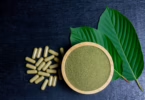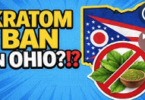By Paul Kemp
Posted Wednesday, September 3, 2014.
Banning the herb kratom is a bad idea and will fail to achieve the desired objectives, just as banning alcohol or marijuana were costly failures.
Ladies and gentlemen, I appeal to your instinct of political self-preservation. I am referring to your desire to stay in office and to leave a legacy that your constituents will be proud of 50 or 100 years from now.
Hopefully, you can envision a better, more enlightened future than the age we now live in.
You are in the uncomfortable position of being asked to make a decision with important financial repercussions for your city, county, or state — a decision based largely on emotion and misinformation.
If you decide to ban kratom, you will be placing an additional financial burden on your citizenry to arrest, incarcerate, and penalize those who dare to disobey your new law.
And, disobey they will!
You see, you have been presented with an appeal to “protect the children” from a substance that is mostly used by adults for pain, both physical and emotional.
An easier way to protect the children and underage thrillseekers from abusing kratom is to regulate its sale to those 18 and older.
If you pass a blanket ban on kratom, you will be denying adults — voters — access to an excellent form of pain relief with none of the risk of fatal overdose that prescription opioid medications present.
Their pain will force them to find the best pain relief they know, kratom, a powdered leaf from a tree in Southeast Asia.
Do you really want to punish those who are in pain, simply because they have found a better way to deal with it?
Someday you may be in the same position due to an auto accident, a chronic disease, or diabetic neuropathy. You may wish — after a few years on narcotic pain meds — that you hadn’t banned kratom.
Is this a good time to add new expenses to your community’s existing tax burden? Will this new expense be received favorably by your voters, when they know all the facts involved?
Have you considered the historic failures of previous statutes that attempted to prevent two similar long-standing human behaviors — the prohibition of consumption of alcohol and the prohibition on the use of marijuana?
Are you willing to ignore the lessons of history, hoping that perhaps this time prohibition of kratom will work?
When a new and better pain relief technology comes along, do you really want to be remembered as the official who voted against it?
Before you take action to ban or regulate this herb, it might be wise to consider the good that this herb is doing for your community or state — benefits that cost your jurisdiction nothing.
What Are the Benefits of Allowing the Sale and Use of the Herb Kratom and its Extracts?
From my observation of the online Facebook groups discussing Kratom, every day I see people who have been injured in automobile accidents, falls on construction sites, people with PTSD, and many with conditions like Fibromyalgia and Lime Disease — for whom medical science has nothing but drugs which numb both mind and body to the pain.
Often, after years of being confined to the house, unable to work or drive due to heavy medications, having tried many prescription drugs, these people are ready to consider suicide in desperation.
Kratom users range in age from their 20s to their 70s.
You need to understand that you are only seeing a tiny portion of those who use kratom who frequent kava bars and smoke shops. The majority of the approximately 500,000 fans are using kratom for medicinal purposes and they buy online.
Time after time, I hear these people have searched the Internet for “natural alternative to Vicodin” and they find kratom. They cautiously try it, doubting that any herb could effectively replace pharmaceutical drugs.
After trying kratom once, most are ecstatic that, as they put it, “Kratom has given me my life back!”
You can read some of their testimonials HERE.
Once again they are able to take care of their home, their children, go back to work and be productive members of their community — something that wasn’t possible while living under a fog of pharmaceutical, FDA-approved drugs.
Many of these folks have been abruptly cut-off by their doctors from the painkillers that had made their pains tolerable. Many had sought online sources of pills and some even turned to heroin when their doctors would no longer prescribe them the legal medications to which they had become addicted.
If you’ve been following the news about the lawsuits filed by the City of Chicago and two large California counties alleging that five pharmaceutical companies knowingly deceived doctors and regulators to market Oxycontin and other powerful opioids as having very little addiction potential, you know addiction can happen to anyone.
Another key benefit that Kratom has been providing your city, county, or state at no cost to taxpayers: Kratom has been used traditionally to gently break the bonds of opium and heroin addiction. With access to kratom, this is inexpensive and just a minor discomfort.
Kratom permits narcotic and other drug users to break their habit at home, without expensive drug rehab counseling, which usually involves introducing them to new drugs which they tell me are more addictive than heroin.
Totally Unnecessary In Most Cases!
Of course opiate and alcohol rehab clinics HATE kratom and are eager to tell fibs about how “kratom is just like Bath Salts”.
Kratom is a direct business competitor of the alcohol and drug rehab industry and can save your taxpayers a lot of money, IF you don’t ban this miracle herb.
It’s embarrassing when any business is revealed as one that gouges their customers, especially if those customers have deep pockets like cities, counties, and state governments.
Many people stop using kratom once they break their opiate addiction. Others continue to use it to deal with anxiety and depression, fibromyalgia, or whatever other reason they sought pain management for in the first place. They usually report it does better than the prescriptions meds they have used.
And so, as public officials elected to pass and enforce laws, you are faced with an interesting dilemma: Shall you turn your back on the benefit the largely unseen majority of kratom users receive and force them to decide between breaking the law to buy kratom illegally or return to the pharmaceutical drugs that they hate?
Keep in mind that they will vote their displeasure if you take away the one herb that eases their pains the best.
Most of these folks will need some type of pain relief for the rest of their lives. They did not choose to become pain pill addicts and they never want to go back to them.
Keep in mind that you will be creating a new law that must be enforced — and this will cost money. Will taxpayers like the idea of paying for enforcement of a law regulating the private behavior of non-violent, hard-working citizens who are causing no problems.
This new wave of anti-kratom activity is precipitated by one young man choosing to commit suicide. His mother conveniently blames kratom, rather than admit what those who knew Ian Mautner say was the real reason.
If you want to help out a guilt-ridden mother, go ahead, but what if your constituents find out the truth?
Neither the FDA nor the DEA find kratom a pressing concern
Will kratom enter a “Dark Ages” like medical marijuana did? Will those in pain be forced to endure seventy years of suffering — waiting for science to confirm what they already know?
Will this pain be made worse by the prison sentences of those who dared to break the law to find freedom from pain in their own chosen way?
Is that where we are headed? To repeat the mistakes made over the phony concerns about the safety of marijuana, while we ignore the real deaths caused by FDA-approved drugs like Oxycontin, Vicodin, Opana, and even Tylenol?
Let me be clear that kratom has little in common with marijuana, except that both are misunderstood plants with a lot of medicinal potential.
Kratom is not an herbal high any more than coffee is. It doesn’t produce the psychic distortions of reality that marijuana does. This is one reason why those in pain prefer it to cannabis. It gives them pain relief, without making them stoned.
I’m hoping this time the American public can learn from the costly mistake we made — actually were forced to make by anti-drug crusaders like Harry Anslinger. FOX News, not exactly a liberal-bias outfit, estimated that the War On Drugs cost One Trillion Dollars and accomplished nothing except it created profits for organized crime, destroyed the lives of non-violent pot-smokers, and wasted taxpayers’ money.
So, why are you so ready to repeat this failed experiment again?
Why does the public need to prove through expensive testing what traditional medicine has already proved and considerable research here has confirmed — that kratom is generally safe and does not cause respiratory depression.
You are asked by newscasters to believe that kratom caused one young man to jump off an overpass and kill himself.
Kratom is known for improving mood, not for causing suicidal impulses (as many pharmaceutical SSRI antidepressants sometimes do).
Did kratom also kill Robin Williams? No, unfortunately, it appears he never tried it — but we are asked NOT to think about drugs that he may have been prescribed in connection with his recent rehab facility visit prior to hanging himself.
Just as we are asked not to consider any role prescription pharmaceutical medications might have played in the increasingly frequent school shootings, the movie premiere mass killing, etc.
The pharmaceutical industry would like us to think they are above reproach — and the media are certainly willing to oblige by censoring any uncomfortable mention of their part in America’s addiction crisis.
A ban on kratom, when we step back and take an objective look at it, is a classic case of “the pot calling the kettle black.”
We recognize we are a prescription drug-addicted society and yet, we are easy prey when Big Pharma, through their associates in the TV news, drug rehab, law enforcement, and medical professions, persuades us to ban the unique herb that makes rehab a do-it-yourself easy process.
Have you noticed that all of those lined up to denounce kratom have a financial incentive in doing so?
What a loss a banning kratom will be to all those whom it has saved from suicide!
In this matter, you are being asked to make an important decision with unforeseeable costs in the future — a decision that is based on emotion, fear of the unknown and distortion of the facts.
The same tactics of persuasion are used practically every time in what appears to be an organized campaign to ban kratom.
And kratom’s principal accuser — Big Pharma — is nowhere in sight! They let the TV stations do the dirty work of proposing a ban on their tough new competitor. Very clever. Will you fall for it?
It will require the wisdom of Solomon to make a decision that present and future generations will be proud of — a decision that allows people to make what we may consider mistakes, so long as they hurt no-one else.
A decision that benefits the majority of citizens, not just a few prosperous business interests.
History, like human personal growth, progresses by way of learning from mistakes. Trying to prevent people from making decisions that could allow them to learn things for themselves, stunts their growth. No pain, no gain.
Our society needs more commonsense education about herbal medicines, not more regulation.
Let’s preserve one of the final freedoms we have left — the freedom to choose the type of medicine we will take.






